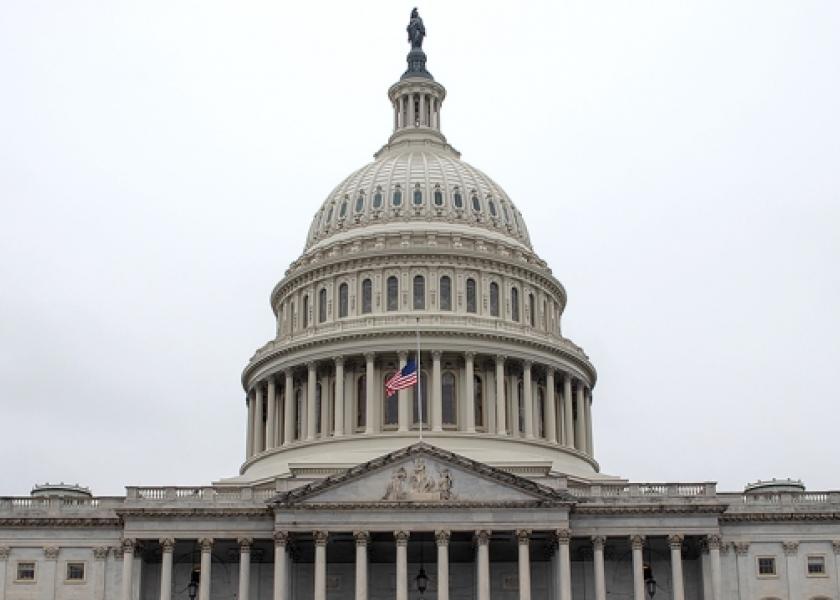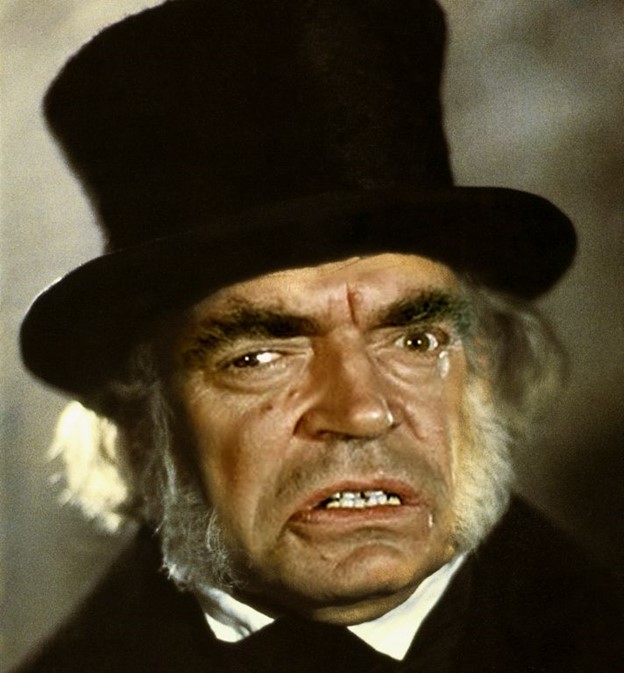Cornett: Nuggets, But No Squirming

So there were nuggets during the congressional ag committee hearings this week. But Wednesday? In the House ag committee? There we were, ready to watch our elected representatives make the packer honchos squirm with hard-hitting, hard-to-answer waterboardy-quality questions and what did we get?
There was no squirming.* Instead, Solid answers from four fellows who just said, over and over in various ways, the market is working. Their big Covid profits were a Black Swan event. Cattle numbers are heading down and as supplies tighten their windfall profits will return to something more normal.
It’s a cyclical business. When there are too many cattle, packers make more. When there aren’t enough, they make less. The cycle is turning and now it will be our turn to get greedy.*
The pols never laid a loop on them. Just a lot of “times are hard and it must be your fault.”
Hey, I’m as suspicious as anybody. But these hearings didn’t move the needle with me. Jack Elam and I heard nothing more about the JBS price-fixing settlement. Not one of those congressbeings asked about it.
The only mention of it came in the House when NCBA President Don Schifelbein said the association had requested an investigation and hadn’t heard “boo or squat.”
The chairman made a point of swearing the bosspackers in and then made them swear they hadn’t colluded in 2015. Took their “no” answers and moved on. Struck me as peculiar. Perjury trap? With such a non specific question? 
There were nuggets. National Beef’s Tim Klein. He said that increased wages and transportation costs have added more than $80 per head to their costs since Covid. And he said that the cost of processing in their largest plant is $120 less than their smaller plant. He had to volunteer that because nobody asked. And nobody asked any of the other CEO’s either. They didn’t ask a lot more than they did, in fact. Too busy making sure the audience knew they cared.
Another nugget came on Tuesday when Kansas cattle feeder Shawn Tiffany who said that most of his feedyard customers were ranchers with fewer than 200 cows who were feeding on AMA contracts because they wanted the extra profits and feedback. So, not the “corporate feeders” some certain politicians are demonizing, but independent ranchers using AMAs trying to do a better job in a tougher world.
As to the packers, when they were asked about limiting AMA’s, you got a shrug. They said they offer them because some cattle feeders want them. (Well, Tyson didn’t say that.)
And one more thing of interest was how little attention was paid by the Senators to the very clear testimony of Colorado State’s Stephen Koontz. He started by asking if a cattle seller would rather have one bid from a packer with $200 processing costs or 3 bids from packers with $500 costs. Nobody seemed to care what the only guy on the panel without an ax to grind thought.
Guys, I’m not here to defend packers. They are what they are. I’m here to suggest we’re chasing a red herring. Same as with the Senate hearing on the Cattle Price Discovery and Transparency Act. Nobody in that hearing told us how mandated cash trade would help. Just more “times are hard, so congress should not just sit there. They should do something.”
For instance, much was made on Wednesday of an (out of context) graph showing the farm-wholesale price spread increased from 2015 to 2022. Much was made of the fact that 17,000 producers went out of business. Nobody mentioned that during that same period of time, we—without those 17,000 producers—produced more beef every year.
So, did packers squeeze them out? Or did we, their competitors?
Gilles Stockton, on the rancher panel, made a big point of “hollowed out” rural communities, and seemed to blame packer consolidation for that. Including, somehow, the fact that rich people are buying ranches and turning them into hunting ranches. Nobody asked what packer consolidation had to do with that. Coy Young of Missouri just asserted that he had “learned” that Alternative Marketing Agreements were causing low cattle prices and implied that is causing terrible hardships among cattle producers. I mean, I’m with him on the hard times being here. I just saw no effort to tie the two together.
I have no complaint with digging deeper into packer’s business. I’d like to see some USDA IG or ombudsman person watching every deal they make, buy or sell. Watching their books like USDA inspectors watch their beef. I think if we’re going to let them be that big and consolidated we’ve got the right to pry into their business.
But what’s going on is just scratching at a phantom itch. It won’t do any good. Packers aren’t why lawyers and doctors buy ranches and run the price of land through the roof. Packers aren’t responsible for real estate developers sucking millions of acres out of production to build houses. Packers didn’t cause the drought that is forcing continued liquidation. Or any of other forces pushing cost of production higher. There are a lot of reasons people leave the cattle business.
Guys, we WANT packers to make money. We WANT them to profit by buying what we produce. When they don’t—as was the case in the mid-teens—they close plants. When they close plants, we have fewer places to sell our cattle. When we have fewer places to sell our cattle, and the bottleneck tightens and cattle prices go down and beef prices go up.
You don’t have to know stochastic from fantastic, much less attend the Wharton School of Economics like the committee chairman did, to know that.
Beef packers are not our enemies. Chicken is our enemy. In 1965, per capita consumption of poultry was 44 pounds. Beef was almost 75 pounds. This year it will be 114 pounds of fowl vs. 58 pounds of beef. If it weren’t for exports, we’d need even fewer producers.
Do you suppose that has anything to do with so many cattle producers disappearing? Do you suppose that has anything to do with the hollowing out of rural communities? More than, say 500 horsepower tractors? More than Walmart? More than farm policy?
Nobody much surprised me during all this. But you can find both hearings on Youtube and I don’t mean to make them sound dull. Some of the witnesses made good points in the Senate. A few of the congressbeings made good points. But there are chocolate chip cookies in those housebrand cookie packages, too. Just not as many as you’d wish.
My favorite moment in the House hearing was late Wednesday, as I was wondering if the committee members were wearing adult diapers or something, when Cat Kammack of Florida talked about equal opportunity vs equal outcomes and legislation based on anger and referred to the political theater we’d been watching for five and one half hours as “political theater.” I never heard of her before, but she sounded like she was tired of sitting there and like she’s pretty secure in her job. Didn’t even refer to “our ranchers. Our precious ranchers.”*****
*I squirmed a little during the producer part of the panel. The fellow from Missouri was just so uncomfortable.
**I didn’t mean to say “we’ll” get greedy. Not us. Only packers do that. We’ll just take every penny we can, no matter how much consumers have to pay. Unlike the congressbeings on the panel who are always voting against congressional pay raises.
***the JBS settlement involved price fixing on the price charged beef buyers. Reminding me of when I asked my Uncle Teddy why his congressional district kept electing a crooked representative. He said, “I guess we think he steals more for us than from us.”
**** And now that I’m off on this tangent, let me say that anybody who blames those 17,000 missing folks on packers AND wants to kill the beef checkoff doesn’t understand the problem. If we’re all going to fit in this business, we need to sell more beef. Otherwise, people are going to keep going out of business. Tyson is glad to promote chicken. It owns the damn things. It is glad to do product innovation on chickens. It owns the damn things. But all it does with beef is buy it and sell it. Promotion and innovation are the beef industry’s responsibility. Let me repeat the math: My $800 calves last fall cost me $1 in checkoff money. Same as the $300 calves I was selling 20 years ago. I invest more in ear tags than I do the checkoff.
***** Part of our loss of market share is due to the fowl industry’s remarkable product development –like chicken nuggets and wings—but it’s mostly price. Nobody in either hearing claimed that retail beef would be cheaper because of mandates or hamstringing packers. In fact, Tim Klein of National Beef said it cost his company $120 per head more at their smaller plant.
******Sorry, Mr. Chairman. That one struck me as a little too smoochy-smoochy for my taste.







